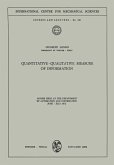This book focuses on a development of optimal, flexible, and efficient models and algorithms for cell formation in group technology. Its main aim is to provide a reliable tool that can be used by managers and engineers to design manufacturing cells based on their own preferences and constraints imposed by a particular manufacturing system. This tool could potentially lower production costs by minimizing other costs in a number of areas, thereby increasing profit in a manufacturing system.
In the volume, the cell formation problem is considered in a systematic and formalized way, and several models are proposed, both heuristic and exact. The models are based on general clustering problems, and are flexible enough to allow for various objectives and constraints. The authors also provide results of numerical experiments involving both artificial data from academic papers in the field and real manufacturing data to certify the appropriateness of the models proposed.
The book was intended to suit the broadest possible audience, and thus all algorithmic details are given in a detailed description with multiple numerical examples and informal explanations are provided for the theoretical results. In addition to managers and industrial engineers, this book is intended for academic researchers and students. It will also be attractive to many theoreticians, since it addresses many open problems in computer science and bioinformatics.
In the volume, the cell formation problem is considered in a systematic and formalized way, and several models are proposed, both heuristic and exact. The models are based on general clustering problems, and are flexible enough to allow for various objectives and constraints. The authors also provide results of numerical experiments involving both artificial data from academic papers in the field and real manufacturing data to certify the appropriateness of the models proposed.
The book was intended to suit the broadest possible audience, and thus all algorithmic details are given in a detailed description with multiple numerical examples and informal explanations are provided for the theoretical results. In addition to managers and industrial engineers, this book is intended for academic researchers and students. It will also be attractive to many theoreticians, since it addresses many open problems in computer science and bioinformatics.
"The book under review is a very good source ... continuing the long term passion of Panos Pardalos and his collaborators in exact solution of difficult problems ... . It also adds a very valuable contribution to the body of knowledge of the cell formation problem that can be used in both teaching and research including in bioinformatics." (Boris Mirkin, Optimization Letters, 2015)








